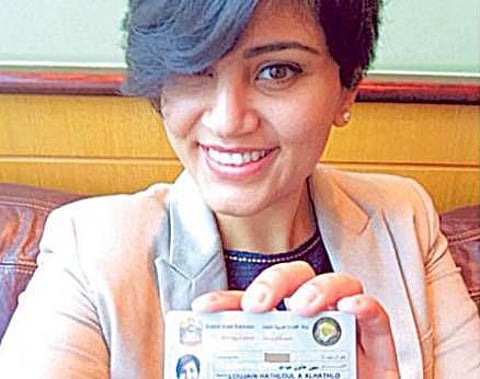3 activists barred as Saudi women look to vote
Municipal election marks the first time women can contest or cast ballots

Riyadh: Hundreds of Saudi women began campaigning for public office on Sunday, in a first for women in the kingdom’s reform process, even as three activists were disqualified.
More than 900 women are contesting alongside thousands of men in the December 12 municipal ballot, which will also mark the first time women are allowed to vote.
“I’ve been eliminated as a candidate for the municipal elections,” said Loujain Hathloul in a tweet.
Saudi authorities detained Loujain for more than two months after she tried to drive into the kingdom last December from the UAE, in defiance of a Saudi ban on female motorists.
She had said she wanted to run “to increase the percentage of women’s participation”.
Another activist campaigning for women’s right to drive, Tamadour Al Yami, said her name was also dropped from the final list of authorised candidates. She vowed to appeal, “but I don’t think it will change anything.”
And Nassima Al Sadah, a human rights activist and would-be candidate in the Gulf coast city of Qatif, said officials informed her late on Saturday that her name had been struck from the list of candidates.
“I don’t know why,” said Nassima, who underwent electioneering training at the National Democratic Institute, a Washington non-profit organisation.
The country’s first municipal elections were held in 2005, followed by another vote in 2011. In both cases only men were allowed to participate.
“We will vote for the women even though we don’t know anything about them,” Umm Fawaz, a teacher in her 20s, said in Hafr Al Batin city.
“It’s enough that they are women,” she said.
Al Jazi Al Hussaini, a candidate in Riyadh, said she did not need any man in her family to grant permission for her candidacy.
“It’s by myself,” the management consultant said.
The late King Abdullah Bin Abdul Aziz cleared the way for women to participate in this year’s vote. In 2013, he also named women to the appointed Shura Council, which advises the cabinet.
King Abdullah died in January and was succeeded by King Salman Bin Abdul Aziz, who has stuck to the election timetable.
In other Gulf states, women have had some voting rights for several years.
About 7,000 candidates are vying for seats on 284 municipal councils, according to the Saudi electoral commission.
Only around 131,000 women have signed up to vote, compared with more than 1.35 million men, out of a native Saudi population of almost 21 million.
Although the voting age has been lowered to 18 from 21 and the proportion of elected councillors has increased to two-thirds, winning a seat remains a challenge for women.
Al Jazi said she had hoped to set up a campaign tent in Riyadh’s Diriyah area. “When I asked the man to give permission for his land... he refused,” she said.
Like other contenders, she plans to focus on an online campaign and has set up her own website, www.aalhossaini.com.
In the Red Sea city of Jeddah, candidate Sameera Abdullah Al Shamat said she too was relying on Twitter, Instagram and other internet forums widely used in the kingdom.
“My daughter and two sons are running my campaign,” said Shamat, a charity worker.
Electoral democracy is still a novel concept in a country where tribal loyalties remain strong and the influence of “wasta” — knowing the right people — is powerful.
Saud Al Shammari, 43, of Riyadh, said it was time for a new approach.
“We strive for development and real change, free from tribal or family biases,” he said, adding “there’s a big possibility”.
Al Shammari said he was open to vote for a woman if she was convinced by her manifesto.
Sign up for the Daily Briefing
Get the latest news and updates straight to your inbox



